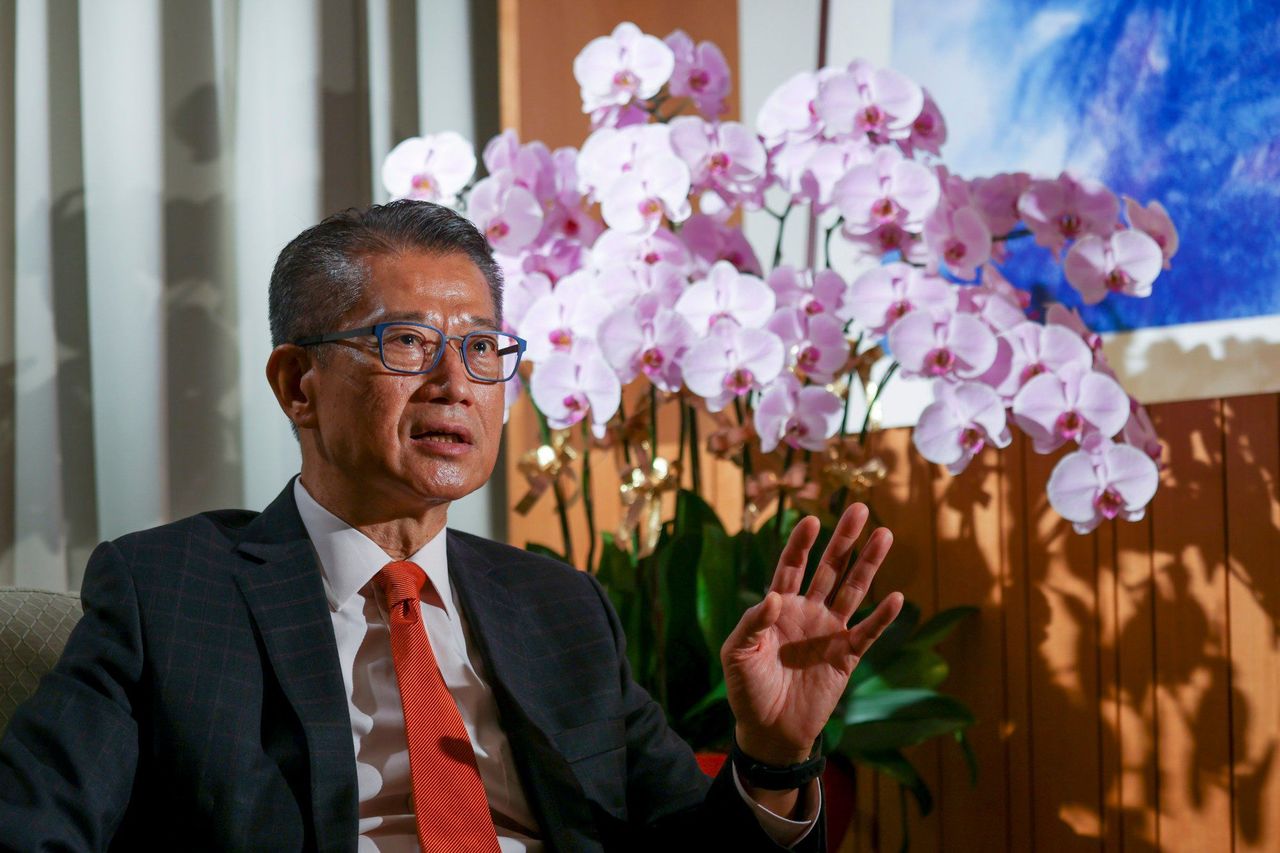Hong Kong News

Hong Kong finance chief says ‘no plan’ to scrap property cooling measures
There is “no plan or intention” for the Hong Kong government to either scrap cooling measures or intervene in the property market despite short-term fluctuations, the city’s finance chief has said.
Financial Secretary Paul Chan Mo-po on Sunday also said that while it was possible the city would raise the prime interest rate if the United States continued with its own increase next month, he hoped the deposit rate would also be increased.
 Financial Secretary Paul Chan.
Financial Secretary Paul Chan.
“We have no plans, no intention [to support the residential property market]. I don’t think there is such a need. This is very clear. I have studied many figures and different situations in the property market,” Chan told a radio programme.
“We can’t see the property market has any risk of ‘falling off a cliff’. Often there are slight fluctuations. Our policy direction and aims are not affected by short-term fluctuations.”
With authorities aiming to help residents buy their first flat, Chan said cooling measures for the property market needed to be maintained.
The government has implemented cooling measures for more than a decade, including the buyer’s stamp duty – a 15 per cent tax on property transactions imposed on non-permanent residents – as well as the double stamp duty, a tax imposed on residential purchases except by first-time buyers.
“The government has been doing it right and there is a need to continue,” he said.
The remarks from the finance chief followed a period of falling house prices. The latest data from the Rating and Valuation Department showed the price index for lived-in homes had dipped 1.1 per cent to 380.5 in June, the most since a 1.8 per cent drop in February and reaching its lowest level since December 2020.
The pledge by Chan also came after Regina Ip Lau Suk-yee, convenor of the Executive Council, Hong Kong’s key decision-making body, had earlier caused a stir in the market when she told Bloomberg Television the city “may consider waiving extra stamp duty on homes for mainland Chinese buyers as a way to shore up the economy and reverse a brain drain”.
Chan’s office had responded by issuing a statement rejecting the news report, which had triggered a surge in local property developer shares.
He said the property market and the future supply of private flats were both stable, but urged residents to consider the impact of the interest rate increase when buying properties, especially since the US could continue to increase its own rate next month.
“The city’s prime interest rate will possibly be raised. To be reasonable and fair, not only the increase of the prime rate, we hope to see that the deposit interest rate will also be raised,” the financial secretary said.
Chan also said authorities remained “cautiously optimistic” regarding the performance of the local economy during the second half of 2022, provided the epidemic situation was under control.
The government had ramped up its epidemic-response capabilities to allow for more economic activities to continue in the city, as well as reducing the hotel quarantine period to minimise any inconveniences for travellers, he said.
Under the current entry regime, overseas arrivals must undergo quarantine at a designated hotel for three days, before undergoing four days of “medical surveillance” at either their homes or another hotel with limited freedom of movement.
But the financial secretary added that it was too early to say whether Hong Kong would scrap its hotel quarantine requirement in the short term, explaining that the administration would need to strike a balance between fully reopening the border with mainland China and the rest of the world.











